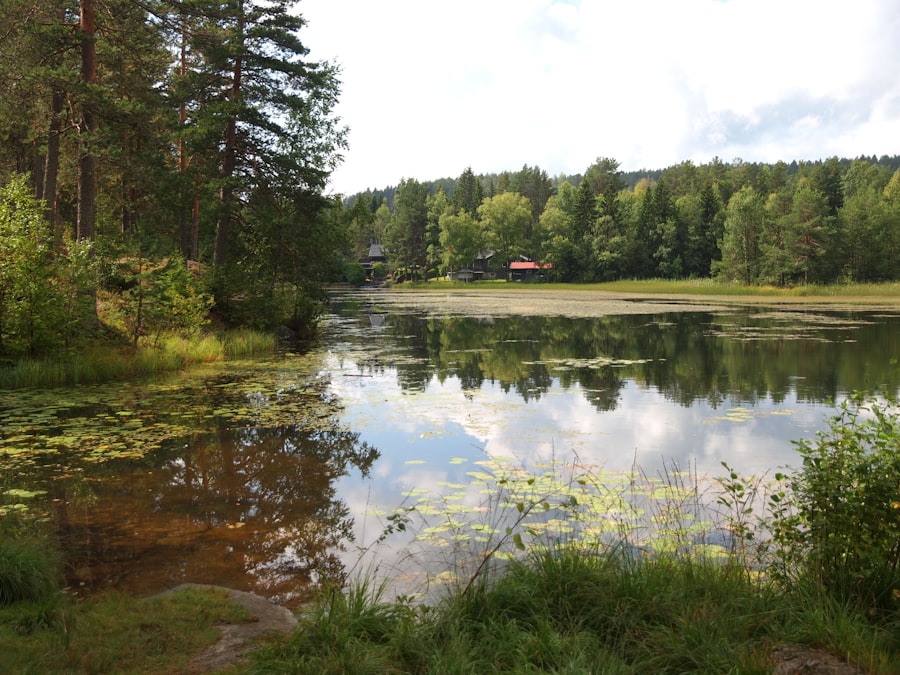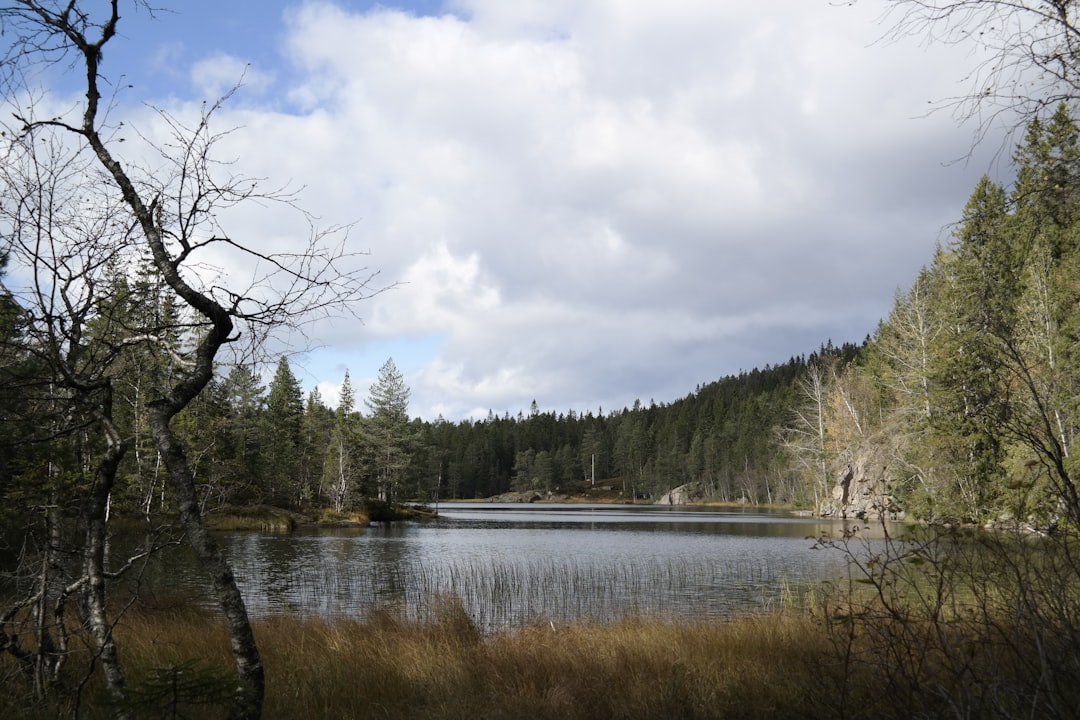Seasonal Affective Disorder (SAD) is a type of depression that typically occurs during specific seasons, most commonly in the winter months when daylight hours are significantly reduced. This condition is believed to be linked to changes in light exposure, which can disrupt the body’s internal clock and lead to feelings of sadness, lethargy, and a general sense of malaise. Individuals suffering from SAD may experience symptoms such as low energy, difficulty concentrating, changes in sleep patterns, and a loss of interest in activities they once enjoyed.
Understanding the nuances of SAD is crucial, especially for those living in regions with long winters and limited sunlight, such as Norway. For expats in Norway, the onset of winter can be particularly challenging. The dramatic shift in daylight can exacerbate feelings of isolation and disconnection from their home countries.
As the days grow shorter and the nights longer, many expats may find themselves grappling with the emotional weight of this seasonal change. Recognising the signs of SAD is the first step towards managing its effects and seeking appropriate support. By understanding the condition, individuals can better equip themselves to navigate the emotional landscape that accompanies the Norwegian winter. Plan your relocation with confidence. Book a personal meeting with the Norway Relocation Group today.
Summary
- Seasonal Affective Disorder (SAD) is a type of depression that occurs at a certain time of year, usually in the winter months.
- Expats in Norway may experience a heightened impact of SAD due to the country’s long, dark winters and limited sunlight.
- Coping strategies for expats with SAD in Norway may include light therapy, embracing Norwegian winter traditions, and engaging in physical activity.
- Seeking professional help for SAD in Norway is important, and expats should consider consulting with a mental health professional or doctor for support.
- Light therapy plays a crucial role in managing SAD, and expats in Norway can benefit from incorporating this treatment into their daily routine.
The Impact of SAD on Expats in Norway
The impact of SAD on expats living in Norway can be profound. Many newcomers to the country may already be experiencing a sense of dislocation and homesickness, and the onset of winter can amplify these feelings. The lack of sunlight can lead to a decrease in serotonin levels, a neurotransmitter that plays a key role in regulating mood.
As a result, expats may find themselves feeling more irritable, anxious, or withdrawn during the darker months. This emotional toll can affect not only their personal well-being but also their professional lives and social interactions. Moreover, the cultural differences in coping with winter can further complicate matters for expats.
Norwegians have a unique relationship with their winter months, often embracing outdoor activities and social gatherings despite the cold and darkness. For those unfamiliar with these traditions, it can be challenging to engage with local customs and build connections within the community. This sense of alienation can exacerbate feelings of loneliness and despair associated with SAD.
Therefore, it is essential for expats to recognise these challenges and seek ways to integrate into their new environment while addressing their mental health needs.
Coping Strategies for Expats with SAD in Norway

Coping with SAD as an expat in Norway requires a multifaceted approach that combines self-care practices with community engagement. One effective strategy is to establish a daily routine that incorporates exposure to natural light whenever possible. This could involve taking walks during daylight hours or arranging work schedules to maximise time spent outdoors.
Additionally, creating a warm and inviting home environment can help combat feelings of gloominess; incorporating bright colours, plants, and comfortable furnishings can uplift one’s mood. Another vital coping strategy is to engage in social activities that foster connections with others. Joining clubs or groups that share similar interests can provide a sense of belonging and support.
Whether it’s participating in local sports teams, attending cultural events, or simply meeting friends for coffee, these interactions can help alleviate feelings of isolation. Furthermore, learning about Norwegian traditions and customs can enhance one’s appreciation for the season and encourage participation in local festivities, which can be uplifting during the darker months.
Seeking Professional Help for SAD in Norway
For some expats, self-help strategies may not be sufficient to manage the symptoms of SAD effectively. In such cases, seeking professional help is crucial. Norway has a robust healthcare system that offers various mental health services, including counselling and therapy specifically tailored for individuals experiencing SAD.
Expats should not hesitate to reach out to healthcare providers who understand the unique challenges faced by those living away from their home countries. Accessing mental health services in Norway may involve navigating language barriers or cultural differences; however, many practitioners are fluent in English and are accustomed to working with international clients. Therapy options may include cognitive behavioural therapy (CBT), which has been shown to be effective in treating SAD by helping individuals reframe negative thought patterns and develop healthier coping mechanisms.
By seeking professional help, expats can gain valuable insights into their condition and learn strategies to manage their symptoms more effectively.
The Role of Light Therapy in Managing SAD
Light therapy has emerged as a popular and effective treatment for Seasonal Affective Disorder. This therapeutic approach involves exposure to bright artificial light that mimics natural sunlight, helping to regulate circadian rhythms and boost serotonin levels. For expats living in Norway, where natural light is scarce during winter months, light therapy can be particularly beneficial.
Many individuals find that using a light box for about 20-30 minutes each day can significantly improve their mood and energy levels. Incorporating light therapy into one’s daily routine is relatively straightforward. It can be done while engaging in other activities such as reading, working, or enjoying breakfast.
However, it is essential to choose a light box that emits at least 10,000 lux of light and filters out harmful UV rays. Consulting with a healthcare professional before starting light therapy is advisable to ensure it aligns with individual needs and circumstances. By embracing this treatment option, expats can take proactive steps towards managing their SAD symptoms effectively.
Embracing Norwegian Winter Traditions to Combat SAD

One of the most enriching ways for expats to combat SAD is by embracing Norwegian winter traditions. Norwegians have a deep-rooted appreciation for their winter culture, which includes activities such as skiing, ice skating, and enjoying cosy gatherings around warm fires. Participating in these traditions not only provides an opportunity for physical activity but also fosters social connections that are vital for emotional well-being.
Moreover, engaging in local festivities such as Christmas markets or winter festivals can create a sense of community and belonging. These events often feature traditional foods, music, and crafts that celebrate Norwegian heritage. By immersing themselves in these cultural experiences, expats can shift their focus from the challenges of winter to the joys it brings.
This positive engagement with local customs can significantly alleviate feelings of isolation and enhance overall mental health during the darker months.
The Importance of Physical Activity for Expats with SAD in Norway
Physical activity plays a crucial role in managing symptoms of Seasonal Affective Disorder. Exercise has been shown to release endorphins—natural mood lifters—that can counteract feelings of sadness and lethargy associated with SAD. For expats living in Norway, finding ways to stay active during winter can be both enjoyable and beneficial for mental health.
Outdoor activities such as hiking or skiing not only provide physical exercise but also allow individuals to connect with nature—a powerful antidote to feelings of depression. Many towns in Norway offer well-maintained trails for walking or cross-country skiing, making it easy for expats to incorporate physical activity into their daily routines. Additionally, joining local fitness classes or sports clubs can provide both structure and social interaction, further enhancing the positive effects of exercise on mental well-being.
Dietary Considerations for Managing SAD in Norway
Dietary choices can also influence mood and energy levels for those experiencing Seasonal Affective Disorder. A balanced diet rich in nutrients can help support overall mental health. In Norway, where traditional cuisine includes hearty dishes made from fish, root vegetables, and whole grains, expats have access to nutritious food options that can positively impact their mood.
Incorporating foods high in omega-3 fatty acids—such as salmon or mackerel—can be particularly beneficial for brain health. Additionally, consuming foods rich in vitamins D and B12 may help alleviate symptoms associated with SAD. Expats should also consider maintaining regular meal times and staying hydrated throughout the day to support their overall well-being.
By being mindful of dietary choices, individuals can take proactive steps towards managing their symptoms effectively.
Building a Support Network for Expats with SAD in Norway
Building a support network is essential for expats dealing with Seasonal Affective Disorder. Establishing connections with others who understand the unique challenges of living abroad can provide invaluable emotional support during difficult times. Expats should consider reaching out to fellow expatriates through social media groups or local community organisations that cater specifically to international residents.
Participating in group activities or workshops focused on mental health can also foster connections while providing valuable resources for coping with SAD. Whether it’s joining a book club or attending wellness seminars, these interactions can create a sense of camaraderie among individuals facing similar struggles. By nurturing relationships within their support network, expats can combat feelings of isolation and build resilience against the challenges posed by seasonal changes.
Exploring Alternative Therapies for SAD in Norway
In addition to conventional treatments like light therapy and counselling, many individuals find relief from Seasonal Affective Disorder through alternative therapies. Practices such as mindfulness meditation, yoga, or acupuncture have gained popularity as complementary approaches to managing mental health issues. These therapies focus on holistic well-being by promoting relaxation and reducing stress levels.
In Norway, there are numerous wellness centres offering classes and workshops centred around these alternative therapies. Engaging in mindfulness practices can help individuals cultivate awareness of their thoughts and emotions while fostering a sense of calm amidst the chaos of winter life. Exploring these alternative options may provide expats with additional tools to manage their symptoms effectively while enhancing their overall quality of life.
Planning for Seasonal Changes as an Expat in Norway
As winter approaches each year, it is essential for expats living in Norway to plan ahead for seasonal changes that may impact their mental health. Developing a proactive strategy that includes self-care practices, social engagements, and professional support can significantly mitigate the effects of Seasonal Affective Disorder. Creating a winter wellness plan may involve setting specific goals related to physical activity, dietary choices, and social interactions throughout the season.
Additionally, scheduling regular check-ins with healthcare providers or therapists can ensure ongoing support during challenging times. By taking these proactive steps, expats can navigate the winter months with greater resilience while fostering a positive outlook on their experience living in Norway. In conclusion, while Seasonal Affective Disorder presents unique challenges for expats living in Norway during the winter months, there are numerous strategies available to manage its effects effectively.
From embracing local traditions to seeking professional help and exploring alternative therapies, individuals have various avenues to enhance their well-being during this time of year. Furthermore, learning Norwegian through courses at the NLS Norwegian Language School in Oslo can provide an additional layer of integration into Norwegian culture—helping expats feel more connected and supported within their new environment as they navigate both language barriers and seasonal changes together.

